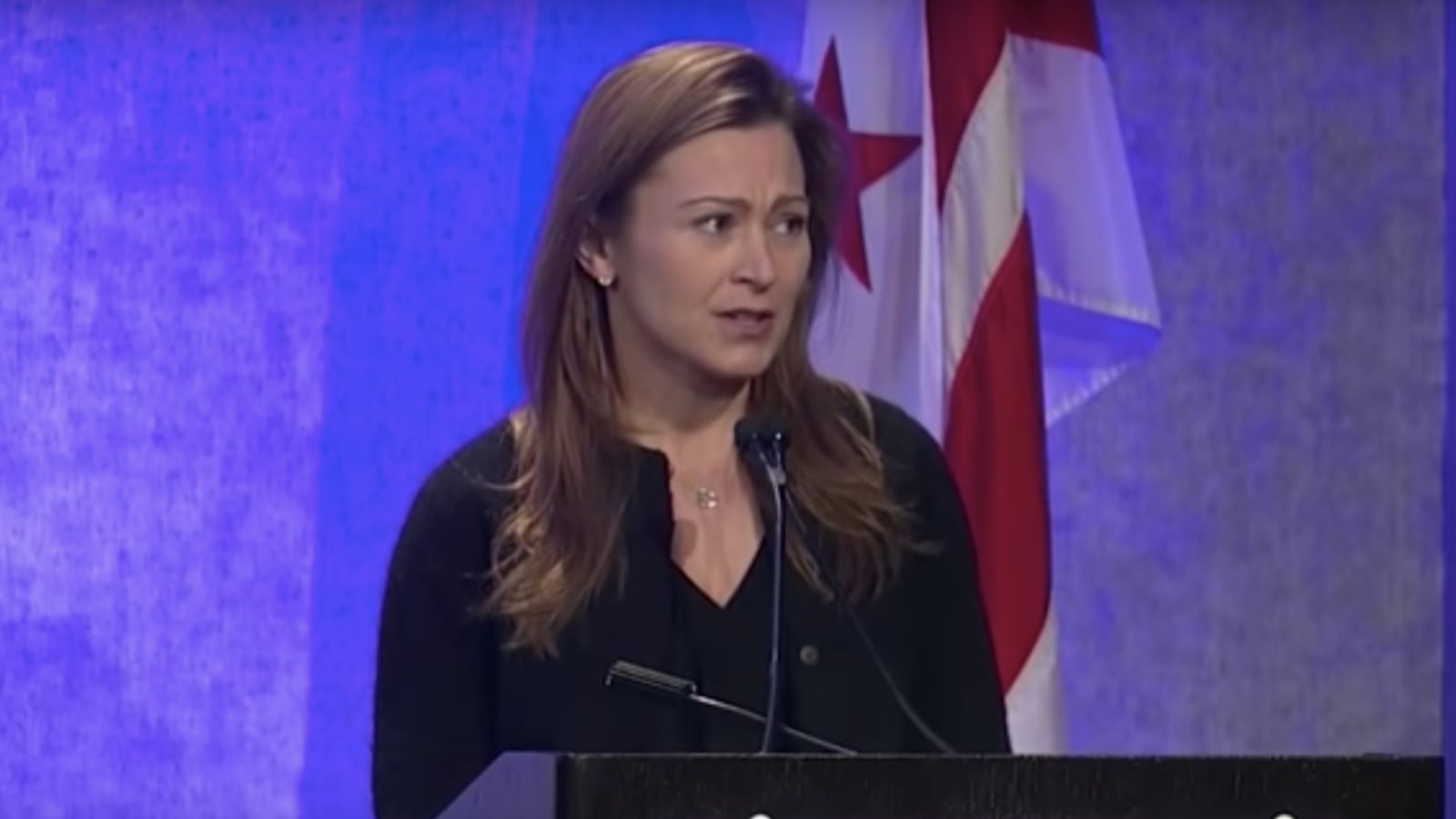Puerto Rico’s recently departed Secretary of Education defended her tumultuous tenure in a defiant speech at an education conference Friday.
Keleher said she closed schools because “somebody had to be the responsible adult in the room.” She accumulated enemies by rejecting how the island’s school system used to work, she said. And she had been affected by online criticism tagged #juliagohome, she told the crowd.
“Has anyone ever felt like a minority in a situation? By your voice, by your demographic? That feeling of ‘other’ is difficult,” said Keleher, who is not from Puerto Rico.
The unusually charged speech, at a Yale School of Management education conference, came after Keleher announced she would step down earlier this week — and included her acknowledging an investigation into some element of her or the department’s work.
As superintendent, Keleher drew resistance for her actions in the wake of two hurricanes that devastated Puerto Rico in 2017 and pushed 130,000 residents to leave the island, causing student enrollment to plummet. She closed nearly a quarter of Puerto Rico’s public schools and opened the island’s first charter school. Two more charters are slated to open next school year, when a private school voucher program is also set to begin.
Frustration followed Keleher to New Haven. A letter criticizing her policies (and her invitation by conference organizers) circulated at the event.
“Rather than overseeing plans that would put the public school system onto a path of genuine recovery and growth, you pushed the creation of charter schools,” said the letter, signed by Yale junior Adriana Colón-Adorno. “You have relied on the emigration of families after Hurricanes Maria and Irma to justify your closing of schools, but basic logic dictates that closing schools would only worsen that the conditions that made them leave in the first place.”
Keleher referenced the criticism before launching into a defense of her work. “If this letter wasn’t about me, it was about you, how would you feel?” she said.
She described the Puerto Rican school system as almost dystopian, lacking basic infrastructure and rife with corruption and patronage before she arrived. Decisions not to award contracts to political campaign workers, she said, earned her “a very vast and powerful group of enemies.”
Her voice wavered as she described visiting a classroom where a teacher was working in the dark. She was trying to change conditions in schools that many in Puerto Rico had to come to accept, she said.
“Are you familiar with New York City, the broken window concept? What happens over time when people just see the broken window? There becomes a state of acceptance,” she said, referring to a controversial policing theory. “In an environment where there aren’t books, and there aren’t teachers, and the buildings are falling down. And that’s just how it is.”
The decision to close schools, she said, was a challenging but necessary one because Puerto Rico had not adjusted in response to long-running declines in school enrollment that were exacerbated by the hurricanes.
“I regret the pain that that caused communities,” she said. “But somebody had to be the responsible adult in the room. They had to do what people hadn’t done in a decade.”
Keleher has also pointed to the additional resources schools have received, like nurses and laptops, as well as planned teacher pay raises.
That hasn’t been enough for some teachers and families in Puerto Rico. At one point during her tenure, teachers in San Juan walked out in protest of Keleher’s policies. The school closures left some parents worried about students’ commutes, NPR reported, and the union attempted unsuccessfully to try to stop new charter and voucher programs.
“During her tenure, Puerto Rico’s Education Secretary Julia Keleher treated educators and parents as a speed bump, implementing policies that created chaos and instability for the island’s 320,000 schoolchildren,” American Federation of Teachers President Randi Weingarten and Puerto Rico’s teachers union chief Aida Diaz said in a statement Tuesday.
When Keleher announced Monday that she was stepping down, she said she planned to stay on as an adviser to the education department. That changed Thursday, as reports surfaced of a federal investigation into department contracts and Keleher said she would drop her advising role.
At the Yale event, Keleher said that it was the right time to turn power over to someone better at handling nitty-gritty details, now that sweeping changes are in the works.
“It was the appropriate time for someone to take on the leadership role who will be responsible for implementation,” she said.
Keleher also referenced an investigation into technology spending.
“We made an investment of $300 million in technology, because not all schools were online, so kids actually didn’t have access to the Internet,” she said. “The headline today is, ‘They demand an investigation into the use of federal funds to buy computers’ Look, we used a rubric. It was a rigorous process … There was nothing fraudulent or illegal or incorrect about how that procurement process happened.”
She declined to elaborate when asked by Chalkbeat. It was unclear whether that is connected to local press reports referencing a federal investigation and legislative inquiry.
“I have no comment about the investigation,” Keleher said. “Investigations have been happening in the Department of Education since forever. So I think they need to be able to run their course.”
Sarah Darville contributed reporting.


